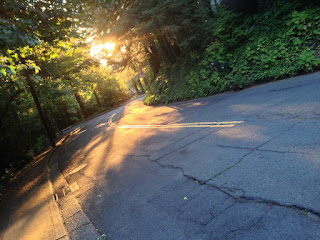How to Forgive
Forgiveness is difficult, but possible, and I'm learning more about what it means to forgive.
The other day, a friend disappointed me, and I could feel anger immediately welling up inside of me. And I observed that I just wanted to take revenge in some way, whether that be through a cold shoulder, a sarcastic retort, or an angry refusal to cooperate with her for the next 24 hours.
But I know forgiveness is important, and I know it's the only way out--for me and for the friendship. Without forgiveness, my relationships die a slow, silent death, or at the very least, catch a cold.
In that moment, considering how to forgive my friend and repair the brokenness, I remembered how I had learned in the past that forgiveness does not mean saying, "It's okay," as if your hurt didn't matter. That approach not only hurts me a second time by minimizing my pain, but is also not even logical. If it was okay, then there was no need for forgiveness to begin with!
I was also remembering a mental image that had helped me understand what forgiveness means. I pictured one person punching another, taking their clenched fist and throwing it with force into the gut of their friend. I pictured the friend's stomach taking the force and them writhing back in pain, absorbing the blow. I think that's what forgiveness is about: absorbing the blow.
One other thing that I was recalling about forgiveness was a lesson I had learned while living in New York City: that forgiving someone has to do with accepting that pain is a part of life.
None of us like to think this way--especially not Americans. If we get a headache, many of us just pop an aspirin. If we get lonely, many of us just hit the button on the tv remote.
But let's take a lesson from the wisdom of the classic and much-loved film, The Princess Bride: "Life is pain, highness. Anyone who says differently is selling something." (Thank you, Westley, for your eternal words.)
So, in this moment of choice that I had the other day, trying to figure out how to forgive my friend, I decided to employ what I had learned. I stopped myself from excusing the hurt, I decided that the force of the punch would be absorbed into my gut and not be returned, and I accepted the fact that pain is a part of life. Like the pain of push ups that make my arms stronger, I became stronger through this pain of forgiveness.
And, although it did not happen immediately, by an hour or two later, I could tell that the barrier that could have been there had been removed from between me and my friend.
Now, why did I do all this? Because I know that Jesus came to painful earth to remove the barrier between me and Him, between you and Him. He opened the only door that would let us out of our darkness.
And he wants me to pass his forgiveness on.
The other day, a friend disappointed me, and I could feel anger immediately welling up inside of me. And I observed that I just wanted to take revenge in some way, whether that be through a cold shoulder, a sarcastic retort, or an angry refusal to cooperate with her for the next 24 hours.
But I know forgiveness is important, and I know it's the only way out--for me and for the friendship. Without forgiveness, my relationships die a slow, silent death, or at the very least, catch a cold.
In that moment, considering how to forgive my friend and repair the brokenness, I remembered how I had learned in the past that forgiveness does not mean saying, "It's okay," as if your hurt didn't matter. That approach not only hurts me a second time by minimizing my pain, but is also not even logical. If it was okay, then there was no need for forgiveness to begin with!
I was also remembering a mental image that had helped me understand what forgiveness means. I pictured one person punching another, taking their clenched fist and throwing it with force into the gut of their friend. I pictured the friend's stomach taking the force and them writhing back in pain, absorbing the blow. I think that's what forgiveness is about: absorbing the blow.
One other thing that I was recalling about forgiveness was a lesson I had learned while living in New York City: that forgiving someone has to do with accepting that pain is a part of life.
None of us like to think this way--especially not Americans. If we get a headache, many of us just pop an aspirin. If we get lonely, many of us just hit the button on the tv remote.
But let's take a lesson from the wisdom of the classic and much-loved film, The Princess Bride: "Life is pain, highness. Anyone who says differently is selling something." (Thank you, Westley, for your eternal words.)
So, in this moment of choice that I had the other day, trying to figure out how to forgive my friend, I decided to employ what I had learned. I stopped myself from excusing the hurt, I decided that the force of the punch would be absorbed into my gut and not be returned, and I accepted the fact that pain is a part of life. Like the pain of push ups that make my arms stronger, I became stronger through this pain of forgiveness.
And, although it did not happen immediately, by an hour or two later, I could tell that the barrier that could have been there had been removed from between me and my friend.
Now, why did I do all this? Because I know that Jesus came to painful earth to remove the barrier between me and Him, between you and Him. He opened the only door that would let us out of our darkness.
And he wants me to pass his forgiveness on.



Comments
Post a Comment